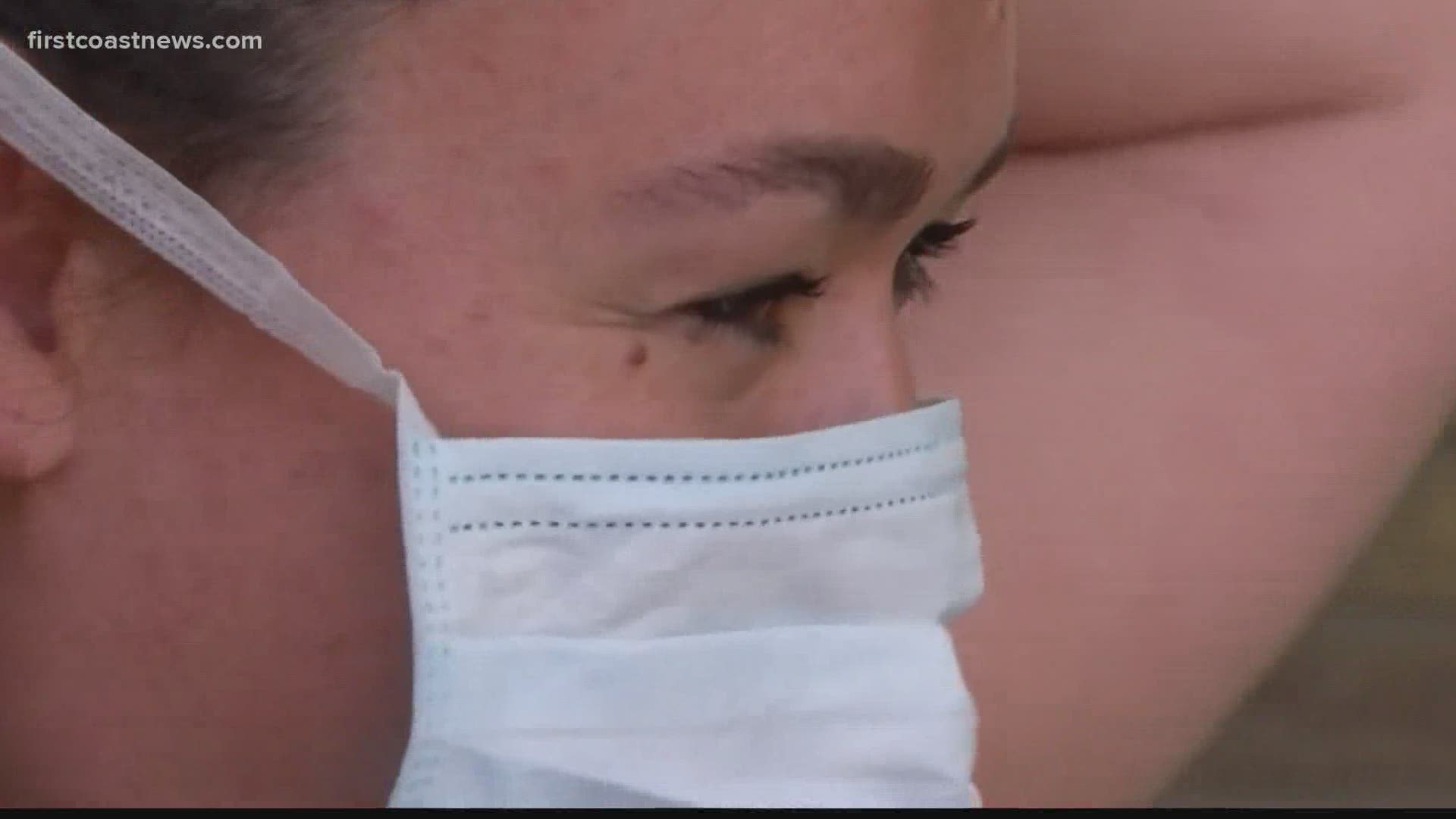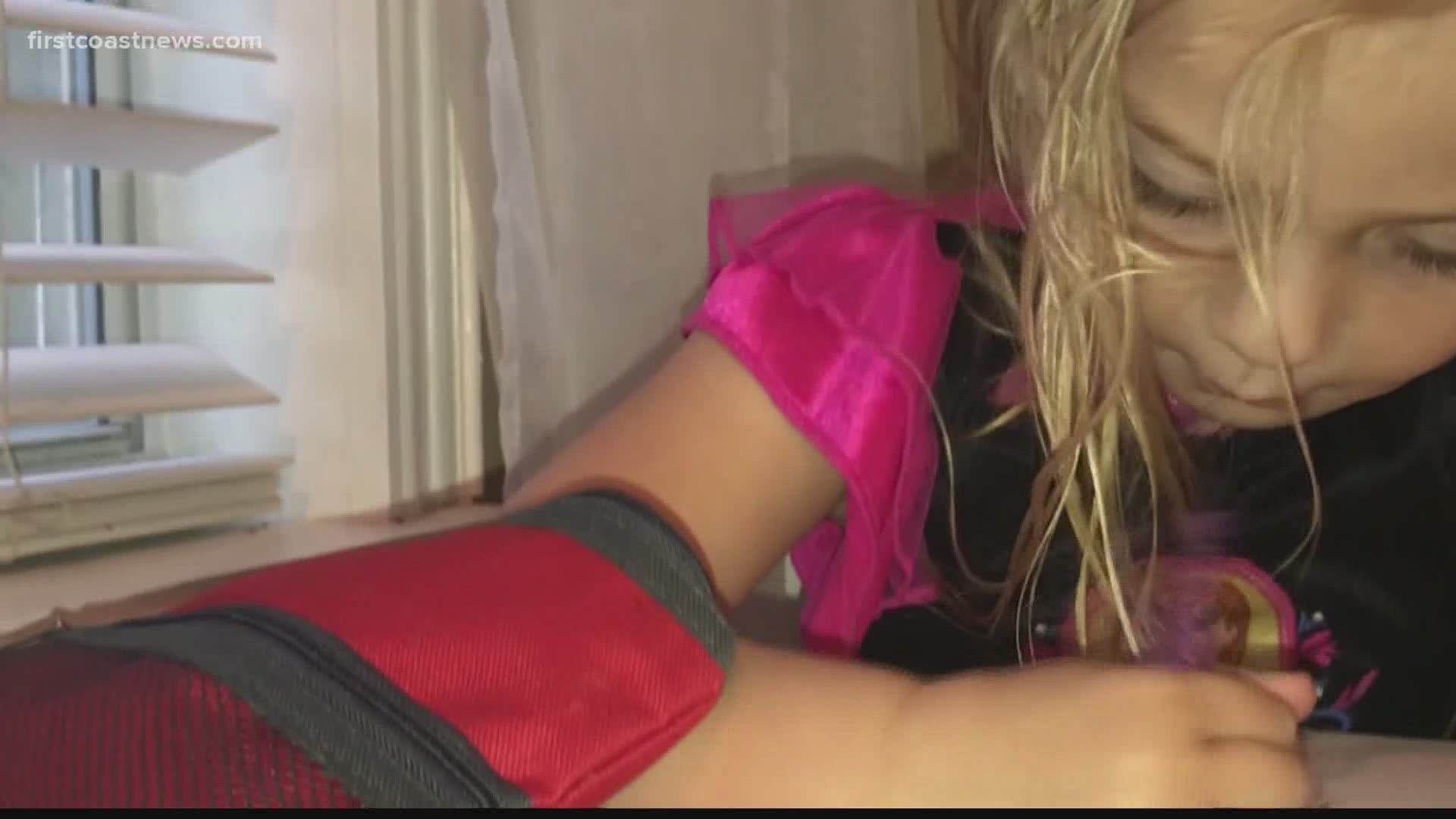JACKSONVILLE, Fla. — One big question with students heading back to school in August is 'what about children spreading the coronavirus?'
We know the frequency of children becoming infected is much less common than with adults, but studies and local doctors say children can still spread the virus.
If you're wondering if your child should get tested for the coronavirus, ask their pediatrician. The symptoms are said to be the same as for adults, but asymptomatic people can spread it, which leads doctors to some very careful advice.
"My mother is a breast cancer survivor, recently just survived breast cancer," said Lauren Little, a parent in Clay County. "So we know she's at risk."
Little's young daughter Zoey has had to be extremely careful around her grandparents who are both in their 80's.
"We don't visit often," Little said. "Maybe every two weeks if that much and we make sure as soon as we come into the home we go straight to wash our hands. We still practice social distancing. Do not get to do any hugging, which is hard."
What if a child and at-risk adult must be in the same home? Doctors say it's a common question and we've seen it asked online. First Coast News brought it to Pediatrician Dr. Jeff Goldhagen, chief of community and societal pediatrics at UF Health Jacksonville
"The child and others in the family should be tested, they should then be quarantined for seven to 14 days then possibly retested then enter into house," Goldhagen said.
Another approach, he says, is to test then retest after several days and quarantine in the home
"If the child and/or other family members are negative then I would allow the child into the home but then quarantine them as much as possible for a total of 14 days," Goldhagen said.
He says you can still test negative three days after exposure to the coronavirus that will make you test positive.
Health department data shows more than 17,000 children have tested positive for the coronavirus in Florida and 213 have been hospitalized. In Duval County, 765 children tested positive and under 3,000 kids have been tested. The percent positive is 26 percent.
There is a simple step that doctors are pleading with parents to do now. That is to get your child up to date on their vaccinations and get a flu shot when they should start to become available next month.
Goldhagen says only 50 percent of children have the vaccinations they need.
"If there were to be an introduction of measles into the community it could possibly result in a significant epidemic," he said.
He says protecting children against the coronavirus is done the same way as with adults, but this is a step for children that must be taken.
"We don't know what interaction of covid and influenza will be but we imagine it will place children and adults at very significantly increased risk," Goldhagen said. "We are urging families, urging families, pleading with families to get themselves and their children immunized for influenza this year."
Taking precautions like hand washing has been a teaching experience for Little's family.
"As soon as we get into the car it's 'take your mask off, put some hand sanitizer on,'" said Little, who has Zoey wear gloves in a store where she knows she'll want to touch toys. "For her birthday we did a Zoom birthday party. It was my first time doing Zoom. She thought it was the best party ever. I was like, 'oh really?'"


